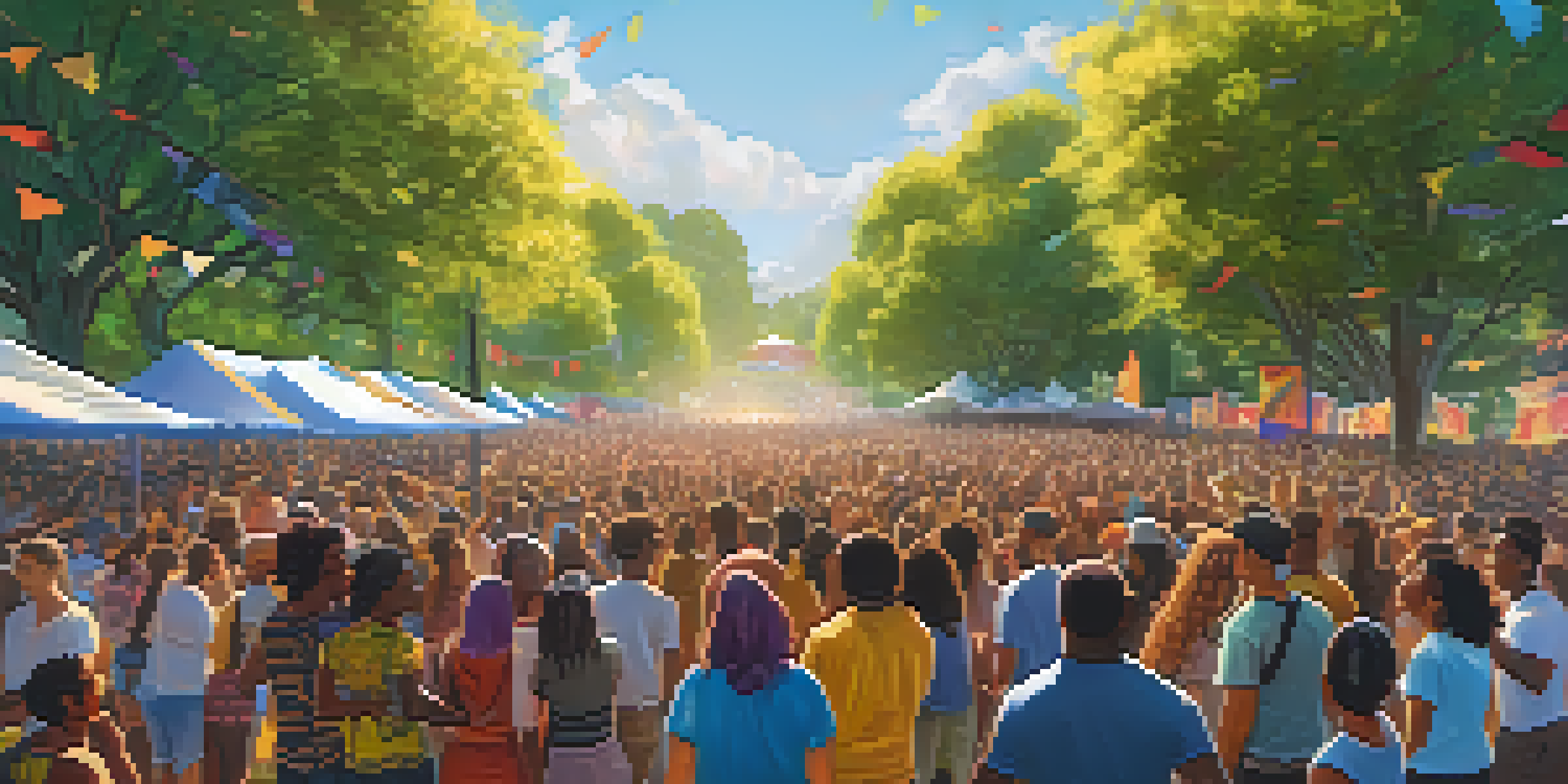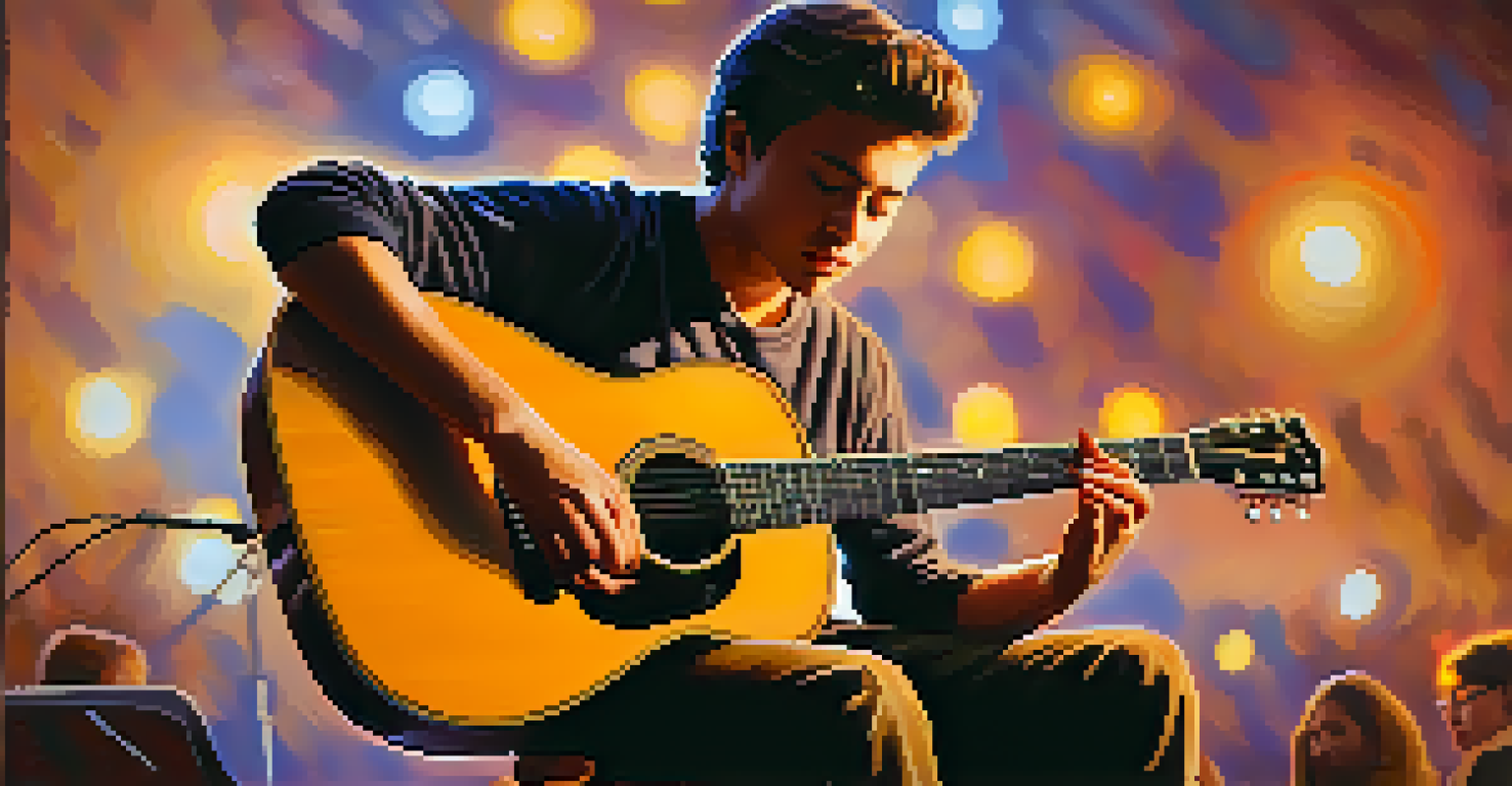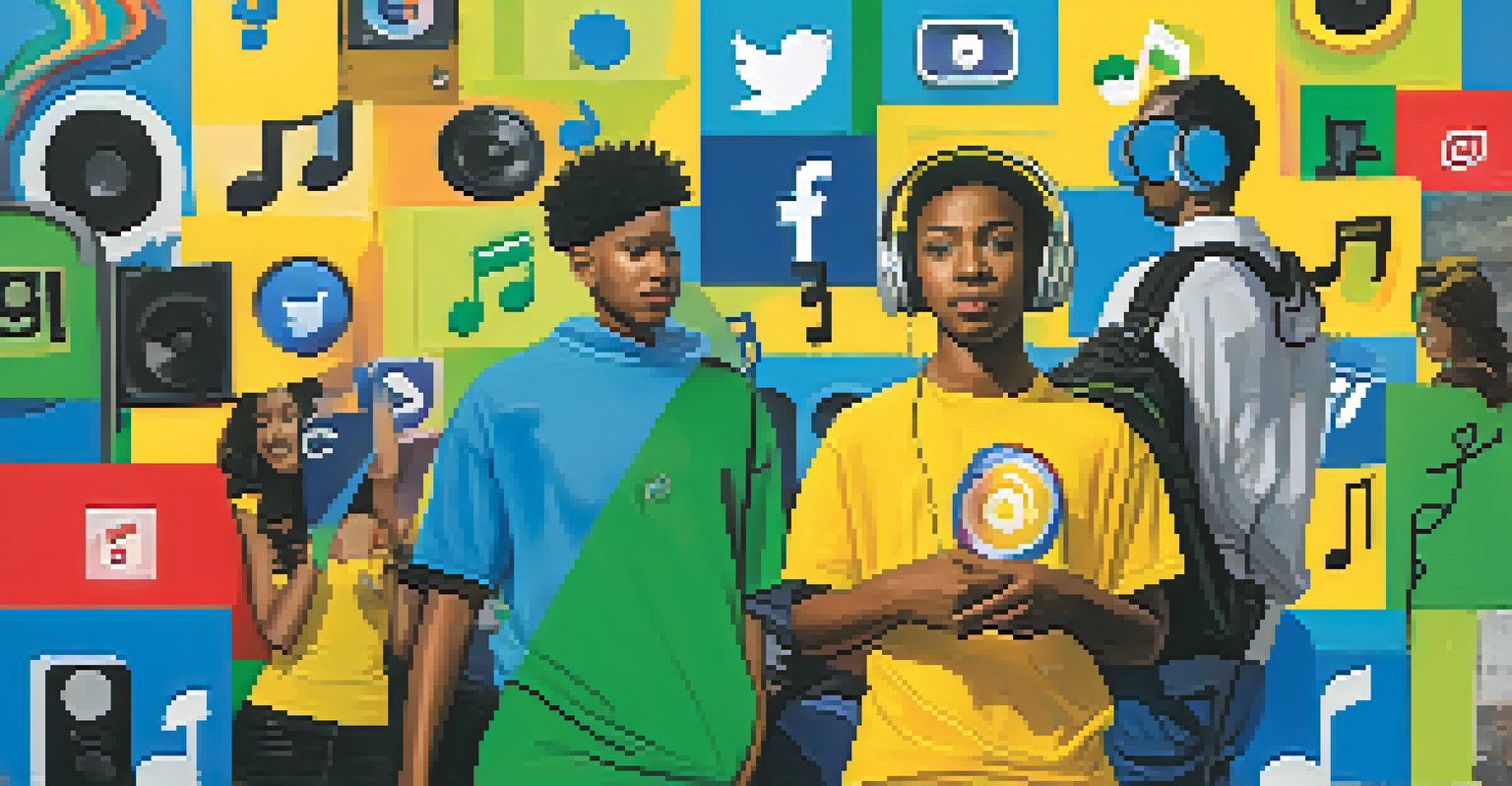The Empowering Role of Music in Youth Activism

Music as a Catalyst for Social Change
Throughout history, music has served as a powerful tool for social change. From the civil rights movement to today's climate strikes, songs have united people under a common cause. They create an emotional connection that words alone often cannot achieve.
Music can change the world because it can change people.
For many young activists, music is more than just an art form; it's a rallying cry that amplifies their voices. When youth gather to sing anthems of change, they foster a sense of community and shared purpose. This collective spirit can motivate individuals to take action and participate in activism.
Moreover, music can transcend cultural and linguistic barriers, making it universally relatable. This accessibility allows diverse groups to come together, strengthening the message of solidarity and empowerment as they strive for a better future.
The Role of Lyrics in Activism
Lyrics often hold the key to understanding the emotions and frustrations of a generation. Songs that address social issues resonate deeply with youth, providing a voice to their struggles. For example, artists like Billie Eilish and Hozier have written lyrics that not only entertain but also provoke thought and inspire activism.

When young people hear lyrics that reflect their own experiences, it can spark a passion for change. These words can serve as a reminder that they are not alone in their feelings and that their voices matter. This connection encourages youth to engage in discussions around important issues.
Music Unites for Social Change
Throughout history, music has been a powerful force for social change, bringing people together under shared causes.
Furthermore, memorable lyrics can become mantras for movements, helping to spread awareness. Songs that are easy to sing along to often find their way into protests, amplifying messages and creating a sense of unity among participants.
Music Festivals: A Hub for Activism
Music festivals have evolved into platforms for activism, blending entertainment with social awareness. Events like Coachella and Glastonbury often feature dedicated spaces for advocacy groups, encouraging attendees to learn about various causes. This combination of music and activism creates a vibrant atmosphere for engagement.
The power of music is in its ability to bring people together and inspire them to take action.
For many young people, festivals are the perfect space to discover new ideas and connect with like-minded individuals. They can participate in discussions, workshops, and performances that inspire action within their communities. This exposure can turn casual concertgoers into passionate activists.
Additionally, festivals often feature artists who use their platforms to speak out on social issues. When popular musicians incorporate activism into their performances, it can inspire fans to take similar stands, creating a ripple effect of awareness and action.
The Impact of Social Media on Music and Activism
In today's digital age, social media has transformed how music and activism intersect. Platforms like TikTok and Instagram allow young musicians to share their messages with a global audience. This accessibility helps to amplify the voices of those who might not have been heard otherwise.
With hashtags and viral challenges, music can quickly become a vehicle for activism. Young people can engage with social issues by sharing songs that resonate with their beliefs or by creating content that highlights important causes. This instant sharing fosters a sense of community and urgency around social change.
Lyrics Inspire Activism
Lyrics that resonate with youth can spark passion for social issues, encouraging discussions and collective action.
Moreover, social media allows for real-time interactions between artists and their fans. Musicians can encourage their followers to participate in activism, whether through fundraising efforts or awareness campaigns, creating a dynamic and interactive environment for change.
Case Studies: Songs That Changed the World
There are numerous examples of songs that have significantly impacted social movements. Consider 'Fight the Power' by Public Enemy, which became an anthem for the civil rights movement. Its powerful message inspired countless individuals to rise against injustice and demand change.
Similarly, 'Alright' by Kendrick Lamar has resonated with the Black Lives Matter movement, offering hope and resilience in the face of adversity. These songs not only capture the spirit of the time but also encourage listeners to engage with the issues at hand.
Each of these songs serves as a reminder of the profound influence music can have on societal change. They inspire individuals not just to listen but to act, highlighting the transformative power of music in activism.
Empowering Youth Voices through Music Education
Music education plays a vital role in empowering young activists. By learning to create and perform music, youth can express their thoughts and feelings about social issues. This creative outlet fosters critical thinking and encourages them to engage with the world around them.
Programs that promote songwriting and musical collaboration can help young people articulate their experiences and advocate for change. When they see their music resonate with others, it builds confidence and a sense of purpose. This empowerment can lead to a lifelong commitment to activism.
Festivals as Activism Platforms
Music festivals have become hubs for activism, merging entertainment with opportunities for advocacy and community engagement.
Furthermore, music education can connect youth with mentors and role models who share their passions. These relationships can inspire the next generation of activists to use their talents for good, creating a legacy of change through music.
The Future of Music in Youth Activism
As we look to the future, the role of music in youth activism is likely to grow even more significant. With the rise of new technologies and platforms, young artists will continue to find innovative ways to express their messages. This evolution will allow activism to reach broader audiences and create lasting impact.
Moreover, as global challenges such as climate change and social inequality intensify, music will remain a crucial tool for mobilization. Young people will harness their creativity to inspire change, using the universal language of music to unite diverse communities.

Ultimately, the empowering role of music in youth activism serves as a reminder of its enduring legacy. As new generations rise to the occasion, we can expect music to remain a vital force in the fight for justice and equality.